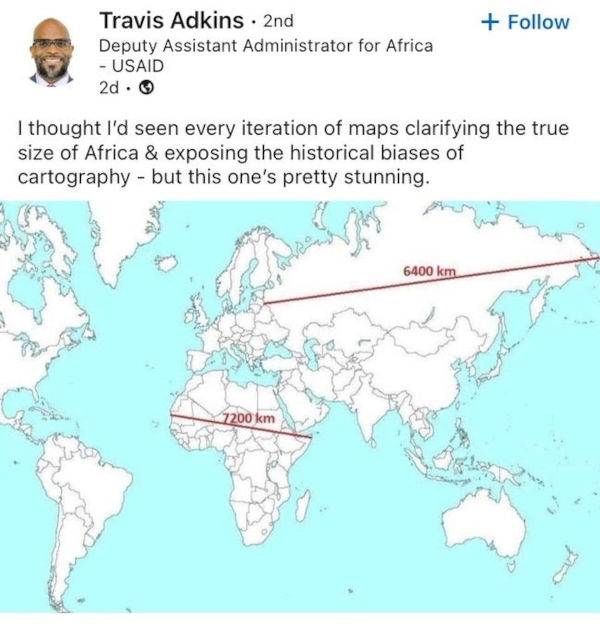[From Unsplash]
Good morning,
In How The Mighty Fall: And Why Some Companies Never Give In, Jim Collins tells the spectacular story of Bank of America through the 80s to highlight why no success can be taken for granted.
In 1906, San Francisco was hit by a huge earthquake. There was general consensus among bankers that a moratorium had to be imposed on lending. But A.P. Giannini, founder of the fledgling Bank of Italy had different plans.
“Giannini lent to the little guy when the little guy needed it most. In return, the little guy made deposits at Giannini’s bank. As San Francisco moved from chaos to order, from order to growth, from growth to prosperity, Giannini lent more to the little guy, and the little guy banked even more with Giannini. The bank gained momentum, little guy by little guy, loan by loan, deposit by deposit, branch by branch, across California, renaming itself Bank of America along the way. In October 1945, it became the largest commercial bank in the world, overtaking the venerable Chase National Bank.
“Over the next three decades, Bank of America gained a reputation as one of the best managed corporations in America...
“Were anyone to have predicted in 1980 that in just eight years Bank of America would not only fall from its acclaimed position as one of the most successful companies in the world, but would also post some of the biggest losses in U.S. banking history, rattle the financial markets to the point of briefly depressing the U.S. dollar… he or she would have been viewed as a pessimistic outlier. Yet that’s exactly what happened to Bank of America.”
He adds, “Every institution is vulnerable, no matter how great. No matter how much you’ve achieved, no matter how far you’ve gone, no matter how much power you’ve garnered, you are vulnerable to decline. There is no law of nature that the most powerful will inevitably remain at the top. Anyone can fall and most eventually do.”
Reading of failures might not seem like a great way to start the week, but the companies that survive and thrive, give deeper thought to this, and therefore take the right decisions to avoid failure.
In this issue
- Be customer-obsessed.
- How to communicate during the pandemic
- Why map is not the territory
Have a great week ahead.
Be customer-obsessed [FF Exclusive]
In the latest edition of Hustle Fuel, a Founding Fuel series that aims to amplify different portraits of what success can look like, Aparajita (Opu) Bhattacharyya talks with Vineeta Singh, CEO of Sugar Cosmetics. An IIT-trained engineer and an IIM MBA, she chose entrepreneurship post her education, and now runs one of India’s fastest growing beauty brands with a multimillion dollar profitable business.
In the interview, Singh tells Opu, “Legacy brands thought that the product is a commodity and the Rs 100 crore they spend on marketing is their moat. We turned that around on its head—if you have a hero product, social media and e-commerce will ensure that it gets discovered and reaches millions of consumers without spending on marketing.”
Vineeta credits a lot of Sugar’s success to their “product obsession” and evolving their products alongside the customers who use them so that they are in line with global trends but suit the Indian aesthetic.
She also believes that “bringing the education that happens in the store online” has helped Sugar scale through earned and owned media, instead of paid media (which legacy brands typically deploy). The 400 million-plus views on their content every month from their community on YouTube, Instagram and their own app ensure that customers learn from other customers how best to use Sugar products.
Dig deeper
How to communicate during the pandemic
In an essay in The New York Times, Adam Grant points out a dangerous trend: “people aren’t so afraid of Covid-19 anymore”. This is dangerous because the pandemic is not over yet, and the new variant brings with it additional risks. He writes, “we’re living through a phenomenon that risk experts might call a ‘boring apocalypse.’”
In such a scenario, how does one communicate information that is critical to public health? Grant has some interesting suggestions.
He writes, “In his pioneering studies of persuasion, the psychologist Robert Cialdini has shown that under uncertainty, people look to others who are similar to them for cues about appropriate behaviour. If you see that many of your neighbours aren’t vaccinated, you might hesitate to get a jab too. That’s why the data suggest that health communicators are better off highlighting raw numbers than percentages: Telling people that around 200 million Americans are fully vaccinated can change their perceptions of the norm. They might think, ‘Vaccines are wildly popular—I need to get mine now!’
“Instead of presenting every new threat like a horror film, it might be time to start playing different movie genres. How about a crime thriller? ‘We’ve found a number of victims of a new variant. The suspect is Omicron, but it’s going to take a lot more detective work to find the means—and to stop it from killing again.’
“Or what if we tried sci-fi? ‘We just received the first communication from the mother ship of an alien species called Omicron. They might turn out to be Klingons or body snatchers, so proceed with caution. But keep in mind that they may not be so hostile—they could be more like Vulcans or the extraterrestrial beings in ‘Contact.’”
Dig deeper
Why map is not the territory

(Via Twitter)
Found anything interesting and noteworthy? Send it to us and we will share it through this newsletter.
And if you missed previous editions of this newsletter, they’re all archived here.
Warm regards,
Team Founding Fuel
(Note: Founding Fuel may earn commissions for purchases made through the Amazon affiliate links in this article.)


